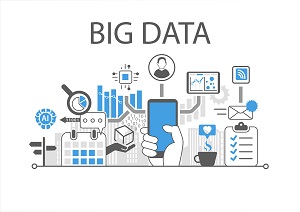Data is infinite. Any organization that wants to grow at a meaningful pace would be wise to learn how to leverage the vast amount of data available to drive growth. Just ask the top five companies in the world today: Apple, Amazon, Alphabet (Google), Facebook, and Microsoft. All these technology giants either process or produce data.
Companies like these with massive stockpiles of data often find themselves surrounded by other businesses that use that data to operate.Salesforce is a great example: Each year at its Dreamforce conference in San Francisco, hundreds of thousands of attendees and millions of viewers worldwide prove just how many jobs the platform has created.
Other companies are using vast amounts of information from associated companies to enhance their own data or to provide solutions for their clients to do so. When Microsoft acquired LinkedIn, for instance, it acquired 500 million user profiles and all of the data that each profile has generated on the platform — all ripe for analysis.
With so much growth evolving from a seemingly infinite ocean of data, tomorrow’s leading companies will be those that understand how to capture, connect, and leverage information into actionable insight. Unless they’re already on the top 10 list of the largest organizations, the problem most companies face is a shortage of highly skilled talent that can do it for them. Enter the data scientist.
More Data, More Analysts
The sheer amount of data at our fingertips isn’t the only thing that’s growing. According to an Evans Data report, more than 6 million developers across the world are officially involved in analyzing big data. Even traditionally brick-and-mortar retail giant Walmart plans to hire 2,000 tech experts, including data scientists, for that specific purpose.
Companies old and new learned long ago that data analysis is vital to understanding customers’ behavior. Sophisticated data analytics can reveal when customers are likely to buy certain products and what marketing methods would be effective in certain subgroups of their customer base.
Outside of traditional corporations, companies in the gig economy are relying even more on data to utilize their resources and workforce more efficiently. For example, Uber deploys real-time user data to determine how many drivers are on the road at any given time, where more drivers are needed, and when to enact a surge charge to attract more drivers.
Data scientists are in demand and being hired by the thousands. Some of the most skilled data scientists are going the freelance route because their expertise allows them to choose more flexible work styles. But how can data scientists who aren’t interested in becoming full-time, in-house hires ensure that the companies for which they freelance are ready for their help?
The Data-Based Gig Economy
Gartner reports that the number of freelance data scientists will grow five times faster than that of traditionally employed ones by next year. The data-based gig economy can offer access to top talent on flexible schedules. But before data scientists sign on for a project, they should check to see that companies are prepared in the following areas:
- Companies need to understand their data before they decide what to do with it. That data could include inventory, peak store hours, customer data, or other health metrics.
- Next, businesses should have streamlined the way they collect and store their data to make it easy to analyze. Use of a CRM platform is a good indicator of preparedness at this stage.
- Finally, companies need to be able to act on the insights they glean. After freelancers are able to use organizations’ collected and organized data to find valuable connections and actionable insights, those organizations should have a process for implementing the discoveries.
Today’s organizations need data in order to be successful, and they need data scientists to make use of that data. In order for both parties to thrive in this era, companies need to have the right strategies in place before they invest in freelance talent. When they do, freelance data scientists will have the opportunity to gather critical knowledge from the data and use their talents to drive innovation and success.
About the Author

Marcus Sawyerr is the CEO of YOSS USA, a professional freelance platform co-created with Microsoft and The Adecco Group. Join YOSS to gain access to verified talent on demand.
Sign up for the free insideAI News newsletter.




